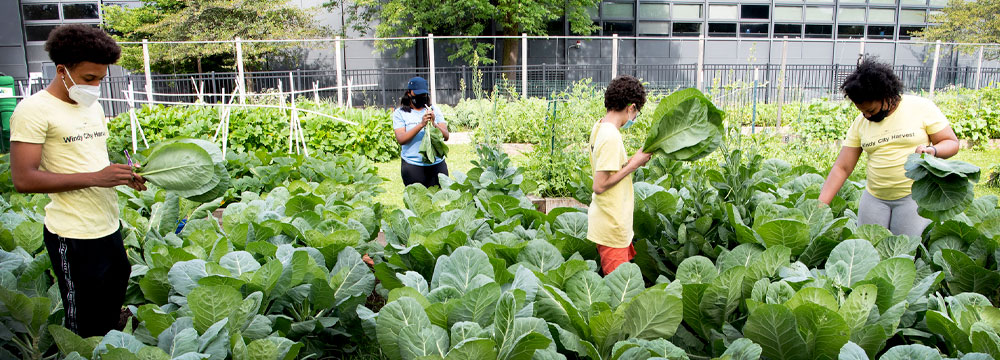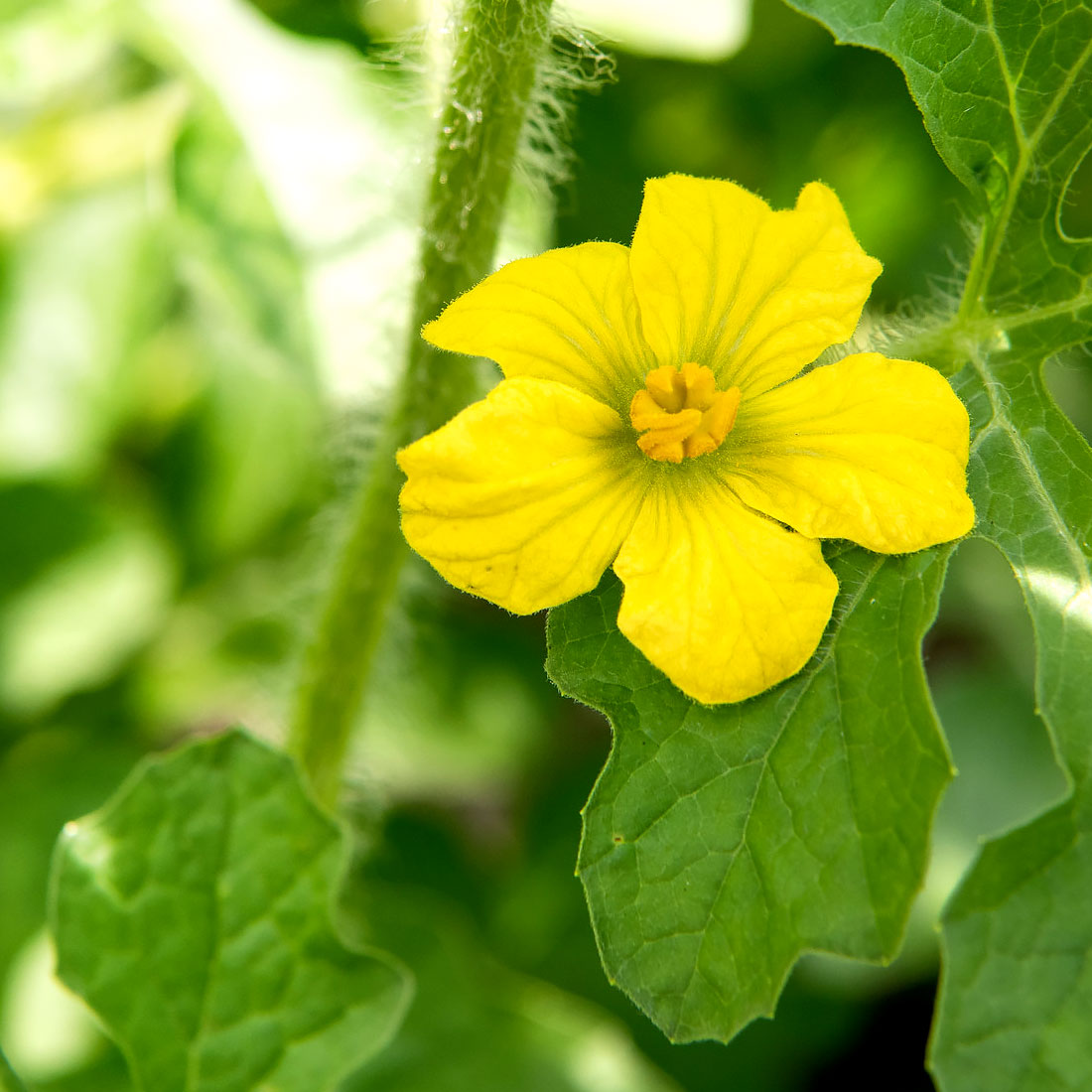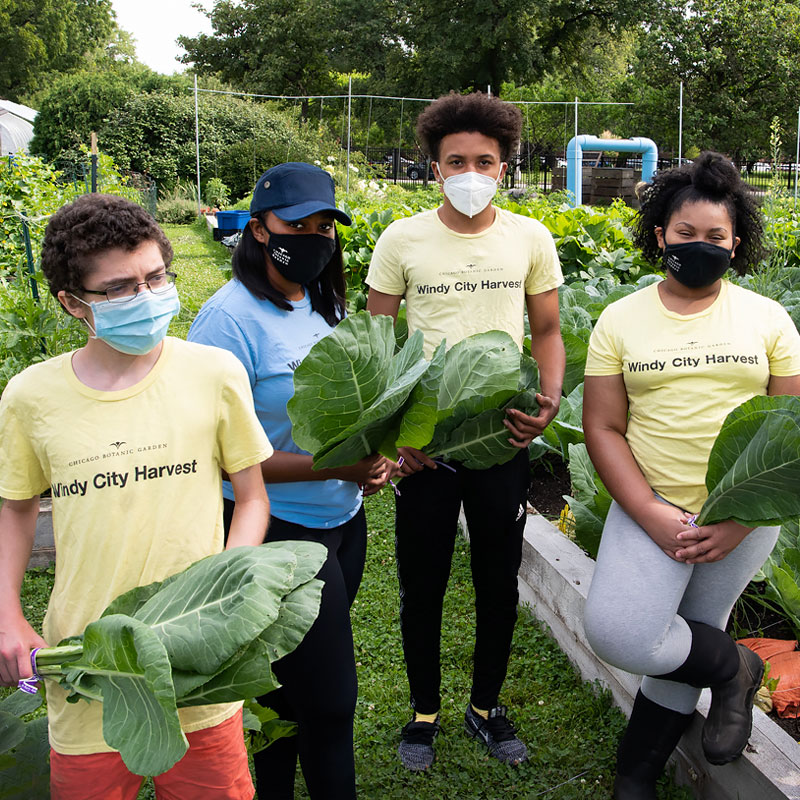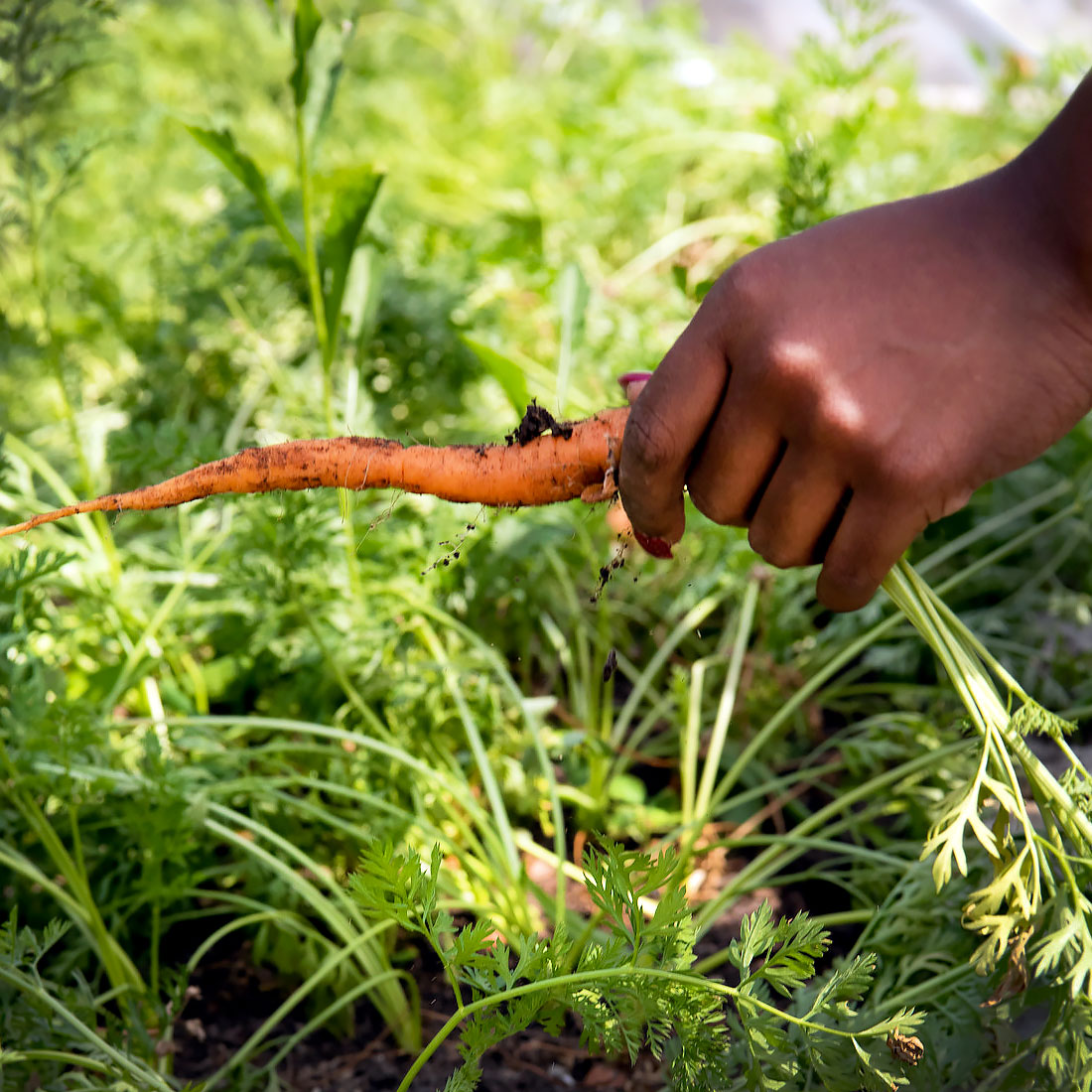As we are all adapting to new ways of connecting for work and play, students in Windy City Harvest’s Youth Farm program have learned to adapt too. With a new way of doing things, the Youth Farm found themselves up against a few obstacles, but discovered some positive surprises along the way.

Windy City Harvest is part of the Chicago Botanic Garden’s urban agriculture program that strives to bring food, health, and jobs to the community. The Youth Farm educates and employs teens from communities from Washington Park, North Lawndale, and Waukegan at three farm sites each year. They learn about sustainable agriculture and social emotional learning. Working as a team, they learn to grow food responsibly, eat in a healthy way, and become accountable to themselves, their fellow farmers, and to their employers.
Thoughts on farming their way through COVID-19...
“We built community by coming together despite the pandemic and produced vegetables for the community during it.”
“I’m glad to have been able to work on the Farm another year.”
“I was glad to come back to familiar faces.”
“If it wasn’t for this opportunity, I would have had more anxiety about the situation. It really does take my mind off of it and makes me forget that COVID-19 is even a thing.”
“Being at the Farm has been really calming, especially during COVID-19. It helps me feel happy, especially with how the world is now, and compared to my other job. I love coming to the Farm. It’s been lots of fun and it feels like a second family."
Ordinarily, youth farmers work on-site and attend in-person workshops, five days a week for eight weeks. This year, because of the COVID-19 health crisis, Youth Farms operated on a hybrid model. They attended virtual workshops two days a week and worked on-site three days a week for a six-week program.
In their virtual workshops, students covered a multitude of topics related to food and community building. The community-building workshops focused on topics like fitting in versus belonging, mapping our communities, and mindfulness. They also set healthy goals and received weekly kits of food with recipes and instructional videos to cook at home.
The whole Youth Farm team had to quickly switch gears from holding mostly in-person workshops to virtual sessions. “Virtual learning has been difficult, both from an instructor’s perspective and the student’s perspective,” said Kate Gannon, Youth Farm manager at Windy City Harvest. “There have been technical and logistical challenges, When students are working on-site, we’re able to cultivate an environment where we can all give the work our full attention. That’s a lot harder to do when students are at home and have distractions,” said Gannon.

Despite technical hiccups and getting students to stay engaged online, the Youth Farm program created a silver lining for students in a less-than-ideal situation.
In one of their final virtual sessions for the summer, students from all three cohorts reflected on their past work and what has kept them grounded. “We built community by coming together despite the pandemic and produced vegetables for the community during it,” said Courtney Wilson.
“I’m glad to have been able to work on the Farm another year,” said Rickia King.
“I was glad to come back to familiar faces,” said Tre Johnson.
The three Youth Farm sites—located in Washington Park, Lake County, and North Lawndale—grow a wide variety of vegetables and some fruits for community-based markets. Since they’ve had to scale back on workshops this year, Gannon and her team have been able to focus more on farm work like preparing beds for planting seeds, weeding beds, harvesting plants, and washing and packing produce for the sites’ farm stands.
Gannon explains that paying more attention to farming has been a big perk of this change in the program. “Focusing on farming with students is where we see a lot of the big social-emotional learning gains. It’s one thing to talk in a workshop about what it means to be a good team player. It’s a whole different thing to put it into practice when you’ve been weeding for two hours, and it’s hot and you’re tired and you really want to give up,” said Gannon.

For David Loran, a high school junior working on the farm site at North Lawndale, the Youth Farm program was a welcome getaway from the COVID-19 health crisis. “If it wasn’t for this opportunity, I would have had more anxiety about the situation. It really does take my mind off of it and makes me forget that COVID-19 is even a thing,” said Loran.
Stephanie Lamas shared similar feelings and enjoyed her time at the Farm. “Being at the Farm has been really calming, especially during COVID-19. It helps me feel happy, especially with how the world is now, and compared to my other job. I love coming to the Farm. It’s been lots of fun and it feels like a second family,” said Lamas.
After a full summer of working virtually and on-site, students came away with a new set of skills, a wealth of farming knowledge, and a newfound love of nature.
“This program has expanded my knowledge of nature and how to preserve and take care of it into something more beautiful. I want to be able to have a garden of my own someday,” said Loran.


